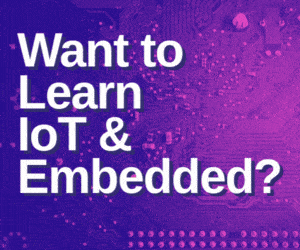- Amalgamate 10 GS/s sampling rates, 12-bit resolution
- 4.7 GHz bandwidth, and data streaming at a brisk pace of 12.8 GB/s.

Spectrum Instrumentation has expanded its flagship series of high-speed peripheral component interconnect express PCIe) digitisers, introducing two new models with broad bandwidths reaching up to 4.7 GHz at -3 dB attenuation or even 5 GHz at -5 dB attenuation. The M5i.3360 and M5i.3367 models come with one and two channels, respectively. These cards can sample at speeds reaching 10 GS/s and offer a 12-bit vertical resolution, engineered to facilitate the precise capture and analysis of signals within the GHz domain. Their substantial bandwidth and swift sampling speeds facilitate signal analysis for frequency content spanning from DC to the Nyquist limit, which is half the sample rate or up to 5 GHz. This suits them for handling ultra-fast signals encountered in laser systems, semiconductor testing, spectroscopy, reflectometry, and many radio frequency (RF) applications.
The built-in memory functions versatilely as a ring buffer akin to a conventional oscilloscope or as a FIFO buffer for continuous data streaming. Oliver Rovini, the Chief Technical Officer, stated, “At 4.7 GHz, these new digitiser cards showcase our peak bandwidth capability thus far. Increased bandwidth leads to lesser signal attenuation at higher frequencies, enabling the capture and analysis of faster pulses and signal transitions. Bandwidth is essential for professionals aiming to analyse high-frequency electronic signals, supported by superior on-board memory and unrivalled streaming speeds in the market.”
Capture Methods and Activation Modes
Acquisitions can be executed in single-shot or multiple-waveform recording modes, with the latter enabling the recording of numerous events, even at high trigger rates. The traditional edge-triggering method, including trigger time stamping, is augmented by several advanced trigger modes designed to assist in capturing the most elusive events. These modes encompass window, rearm, delay, and software triggers, complemented by the functionality to establish specific trigger conditions based on Boolean logic by utilising the card’s inputs, which include channel, trigger, and digital lines.
Software and Driver Solutions
Ideal for automated testing systems, these cards are compatible with both Windows and Linux operating systems, and equipped with a comprehensive software development kit (SDK) that supports a wide array of programming languages, including C, C++, C#, Delphi, VB.NET, J#, Python, Julia, Java, LabVIEW, and MATLAB. This SDK includes necessary driver libraries and numerous programming examples. For users who prefer not to create their code, the company offers SBench 6 Professional, a powerful graphical user interface (GUI) that allows complete card control with features for display, analysis, data storage, and documentation, as well as incorporating advanced processing techniques like FFTs for frequency domain analysis and data interpolation for improved timing measurements.
The cards come with a 5-year product warranty, complemented by complimentary software and firmware updates, and direct customer support from the engineering team throughout the product’s lifespan.
For more information, click here.








